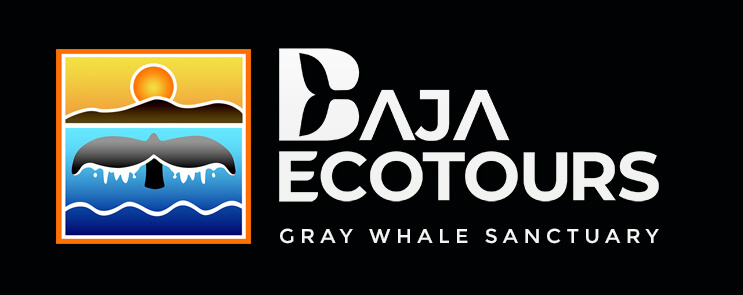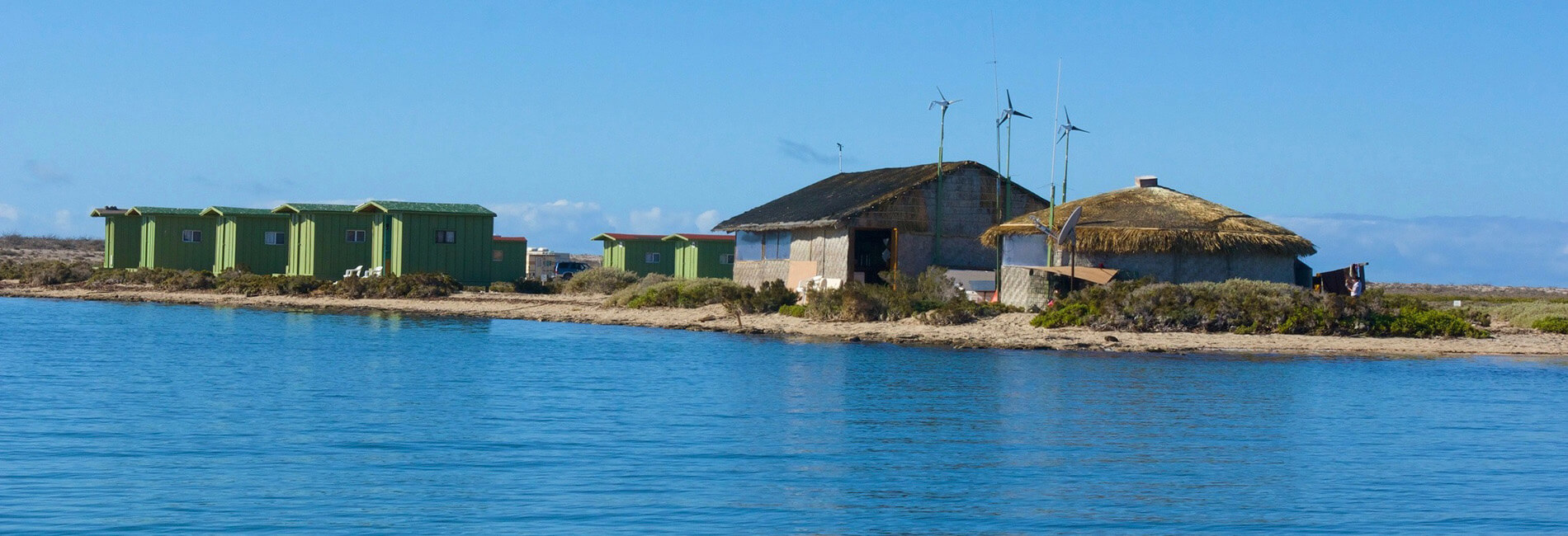Our Commitment to Sustainable Ecotourism
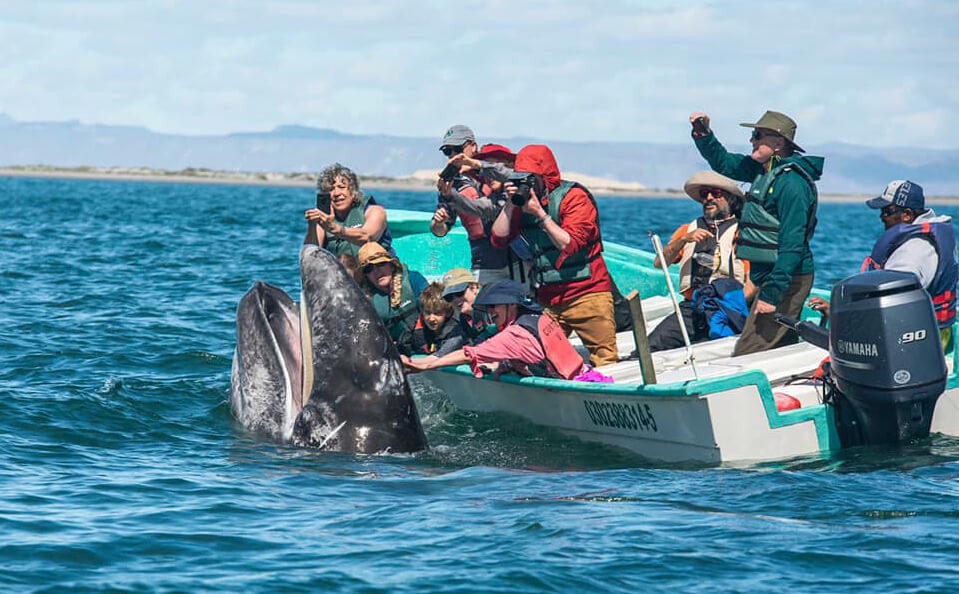
From the beginning, our goal has been to steward our land where we set up our Ecolodge each year. Maldo and his wife, Catalina, are long-time residents of the Lagoon, with Catalina and her siblings having been raised here and spent her entire life in the area. Catalina plays a crucial role in Baja Ecotours as the head chef and assists Maldo with the daily operations of the camp.
Our kitchen and boat staff are all family members, each contributing to the daily operations of our camp. The dedication of our team extends to conserving water, minimizing waste, recycling, and respecting the land. Here are a few examples of our sustainable practices:
- Food Waste Management:
We send our food scraps to pigs on a local ranch and farm where we buy much of our produce. - Recycling:
We wash, dry, and recycle every piece of plastic that comes through the kitchen, including bags, bottles, and Saran wrap. - Grease Trap:
We use a simple but effective grease trap to ensure all dirty dishwater is well-filtered before being released into the ground. - Water Conservation:
We use minimal water to avoid disrupting the local plants and altering the ecosystem.
During both the season and off-season, our staff conduct beach clean-ups, collecting and recycling trash that washes ashore. They also creatively repurpose items, such as filling plastic soda bottles with clean plastic bags to create dense plastic-filled bottles used as legs for stools at the local grade school.
The waste generated from each of our trips is minimal compared to other camps with similar guest numbers. What cannot be recycled, composted, or fed to the pigs is taken to the dump. Given the limited waste management resources in Baja, it is crucial to keep as much waste out of landfills as possible.
Our commitment to these practices extends beyond the season. Our staff apply these same principles at home and they bring their sustainable habits to our Ecolodge. This dedication is not mandated by management but is a reflection of their genuine love and respect for the land and ecosystem. These practices are not talking points; they are a way of life for us.
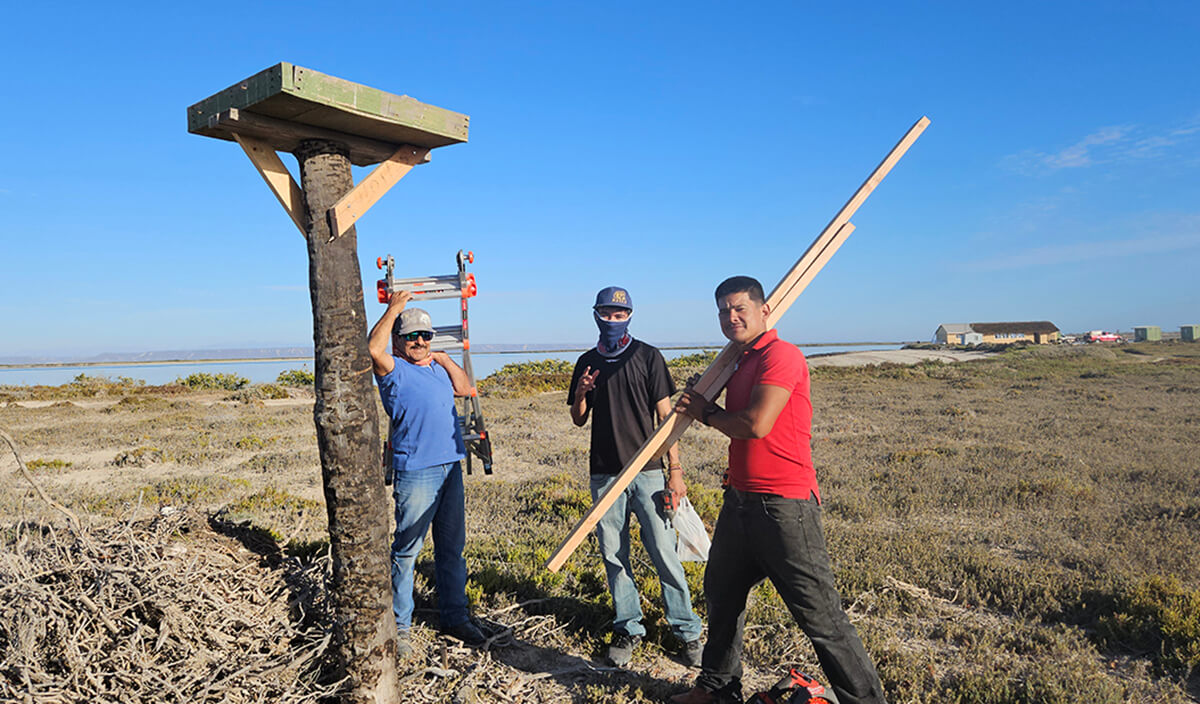
Fixing an Osprey nest perch.
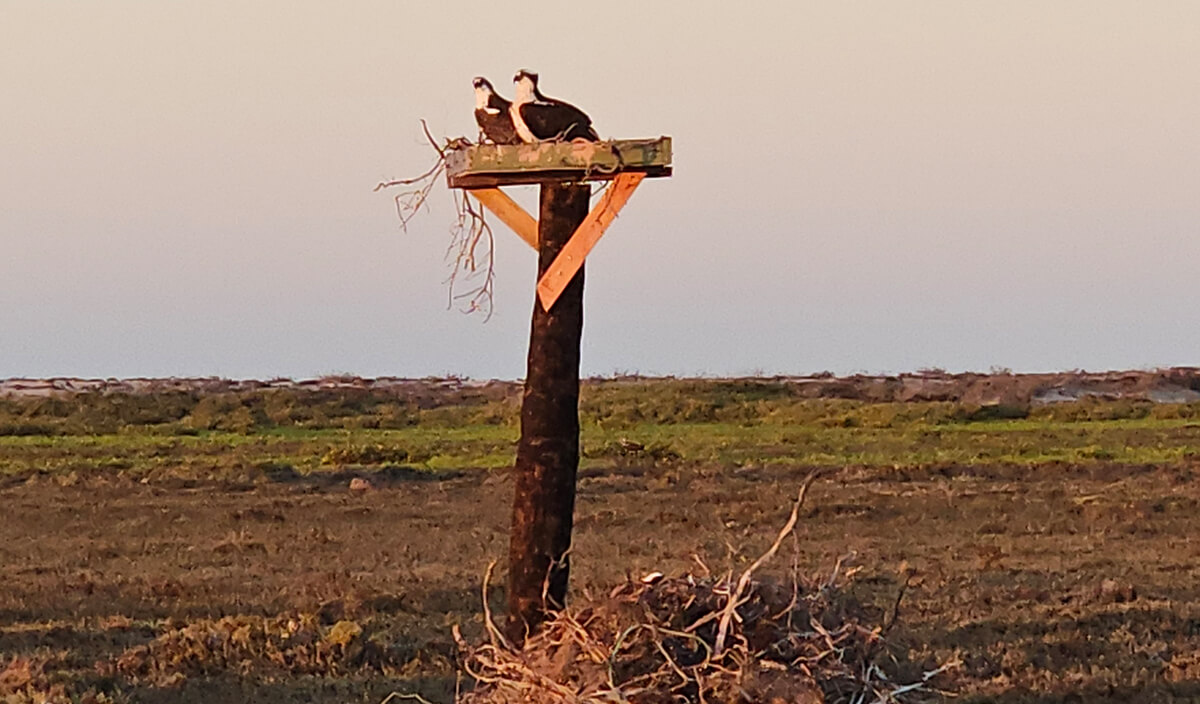
Ospreys enjoying their new nest!

